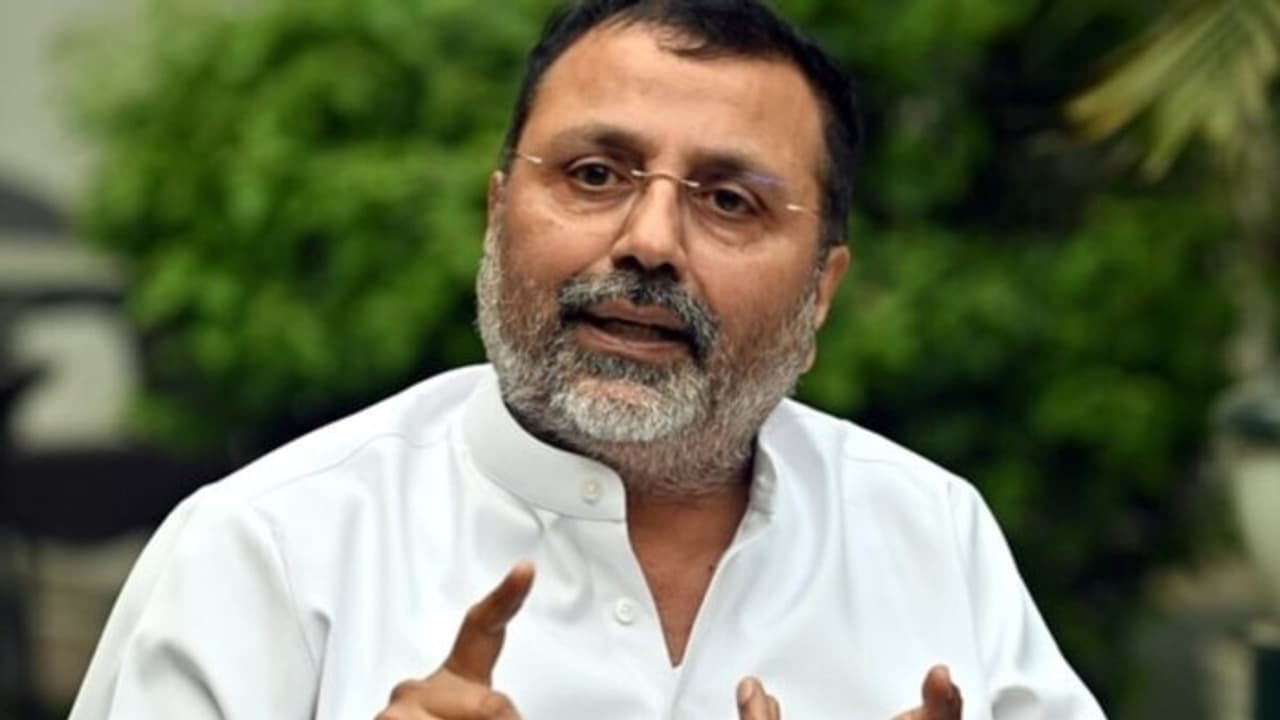The All India Bar Association has criticized BJP MP Nishikant Dubey's remarks about the Supreme Court, urging Prime Minister Modi to address the issue to maintain public trust in the judiciary and uphold democratic principles.
In a significant development, the All India Bar Association (AIBA) has expressed strong disapproval of BJP MP Nishikant Dubey's recent comments concerning the Supreme Court. The AIBA, led by Chairman Dr. Adish C. Aggarwala, has addressed a letter to Prime Minister Narendra Modi, emphasizing that such statements could erode public trust in the judiciary and urging for a measured response to uphold the sanctity of democratic institutions .

The controversy stems from Dubey's assertion that if the Supreme Court continues to ‘make laws’, Parliament might as well be shut down. This remark, perceived as undermining the judiciary's role, has sparked widespread criticism from legal professionals and political figures alike.
Dubey had reportedly said, "If the Supreme Court has to make laws, then Parliament should be shut down," a statement that has drawn sharp reactions from the legal community. Dr. Aggarwala, who is also a Senior Advocate and former President of the Supreme Court Bar Association, termed the comment "stunning" and cautioned that such remarks from ruling party leaders can "erode public trust in the judiciary."
Referring to the Supreme Court's landmark 2023 judgments in State of Punjab vs. Principal Secretary to Governor of Punjab and State of Tamil Nadu vs. Governor of Tamil Nadu, Dr. Aggarwala clarified that the Court had acted within constitutional bounds by prescribing a reasonable three-month timeframe for Governors and the President to take a decision on Bills, in the absence of any specific timeline under Articles 200 and 201 of the Constitution.
Dr. Aggarwala, in his communication to the Prime Minister, highlighted the potential dangers of such rhetoric, stating that it could lead to a constitutional crisis by blurring the lines between the legislative and judicial branches. He emphasized the importance of maintaining respect for the judiciary's independence and cautioned against public statements that could diminish its authority .
The legal community's response underscores the delicate balance of power among India's democratic institutions. While the judiciary interprets laws, the legislature enacts them, and the executive implements them. Any perceived overreach or encroachment by one branch can lead to tensions and undermine the system's integrity.
Political reactions have been mixed. Some members of the ruling party have defended Dubey's comments as expressions of concern over judicial activism, while opposition leaders have condemned them as attacks on the judiciary's independence. Legal experts argue that while constructive criticism is essential in a democracy, it must be conveyed respectfully and through appropriate channels.
This incident is not isolated. In recent times, there have been instances where political figures have publicly criticized judicial decisions, leading to debates about the boundaries of free speech and the importance of maintaining institutional respect. The current situation serves as a reminder of the need for dialogue and understanding among the branches of government to preserve democratic values.


